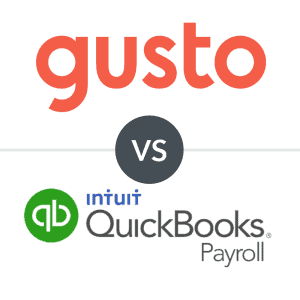The IRS, federal tax agencies, and local tax authorities require you to keep payroll records for a minimum amount of time. Here's how long you need to hold onto your payroll records.
Payroll records should be kept by your business – but for how long? In general, it’s a good idea to keep payroll records for as long as possible. However, the IRS, local tax agencies, and federal laws set the measure for how long you should keep payroll records.
Whether you’re new to keeping payroll records or are looking to organize your business’s payroll records, we’ve got you covered. Here’s everything you need to know about payroll records.
What Are Payroll Records?
Payroll records are documents that provide evidence of an employee or contractor’s pay rate, pay schedule, tax withholding, deductions, benefits contributions, and hours worked. The following documents may be considered payroll records:
- Pay stubs
- Bank statements
- Employee timecard records
- Employee tax forms (I-9s, W-4s, W-2s, etc.)
The IRS, federal laws, and local governments may require payroll records to be kept for different amounts of time, so it’s always better to err on the side of caution and keep payroll records securely stored for as long as possible.
Why Do You Need Payroll Records?
In the US, nearly all businesses are required to keep payroll records for legal and/or tax purposes at the federal and local levels.
At the federal level, both the Fair Labor Standards Act (FLSA) and the Age Discrimination in Employment Act (ADEA) require employers to retain employee records for at least three years. These payroll records help prove to the government that your employees are collecting the money you owe them on-time every pay cycle.
The IRS and local tax agencies require payroll records to be kept for over three years. Payroll records let the tax agencies know that you’re withholding the right types and amounts of taxes from your employee’s paychecks.
You may also be required to furnish payroll records if your business is audited. In fact, keeping accurate records is one of the best ways to avoid a tax audit due to tax filing mistakes.
What The FLSA Says About Payroll Records
The FLSA, passed in 1938, applies to any business whose annual sales surpass $500,000. Small businesses need to be familiar with FLSA requirements, which operate at the federal level before they start to look at any state-level requirements. This approach lets business owners build their record-keeping systems around FLSA requirements and later tweak them to state-specific requirements when they know what additional payroll information they need to keep.
The FLSA has different requirements for your non-exempt and salaried employees which you should become familiar with. For instance, companies are federally required to maintain basic payroll and wage base information for exempt employees. On the other hand, they only need to submit timecard information — like workweek timestamps and weekly hours worked — for non-exempt employees. These requirements will quickly become overwhelming if you don’t structure your record-keeping process around them.
States provide their own guidance regarding payroll record-keeping. There are certain parties, like insurance companies and state-level audit agencies, who have different record-keeping requirements from the IRS. You may be at risk of neglecting your workers’ comp coverage responsibilities if you don’t keep additional payroll records.
Contact a federal and state-level authority at an insurance or auditing agency who can help you figure out what additional payroll records you need to keep per FLSA requirements. The Department of Labor (DOL) also maintains useful state resources that can help your business submit its payroll records on time.
What Information Needs To Be Included In Payroll Records?
At a minimum, your checklist of federal payroll records should include:
- Personal employee info, including full names, birth dates, addresses, SSNs, and offer letters
- Your employer identification number (EIN) to make it easy for the IRS to review your tax statements
- A complete collection of wage-related data, including total amounts and the dates and times you paid your employees during a pay cycle
- Time-related activities for non-exempt employees, including hours worked per week and times clocked in and out
- Regular employee deposits to savings accounts, insurance, and pensions
You’re also responsible for fulfilling other record-keeping requirements, which are usually defined at the state level. You’ll need to double-check with a state authority to be certain, but chances are high that you’ll have to furnish workers’ compensation insurance for your employees.
Authorities who conduct labor department audits or work at insurance agencies will ask for additional requirements depending on which state you operate out of, too. Bear in mind that your record-keeping requirements will also change based on the ratio of exempt to non-exempt employees your business employs.
How Long To Keep Payroll Records
The IRS is clear that businesses are required to keep most payroll records for three years, although more sensitive information like taxes and retirement statements need to be kept for even longer. Information used to calculate wages for your non-exempt employees, like timesheets and schedules, only needs to be kept for two years under the FLSA.
The Department of Labor also has several items they need you to keep for extended periods of time. These are sensitive documents that are important to your employees, no matter how big or small your business is.
Mandatory payroll records you need to keep for longer than three years are:
Retirement Records
Statements of your employees’ 401k or profit-sharing through a retirement plan are some of the most sensitive records you need to keep. The DOL requires that you hold on to your employees’ retirement income statements for six years, which includes enrollment, payment, and deduction forms.
Employee Wages
It’s also crucial to hold onto your employee wages. Paystubs are critical because they prove to the DOL that you’ve paid your employees on time every quarter. You’ll keep your wage records for four years, including adjustments you’ve made to wages within that time frame.
Tax Information
The IRS is clear that you should keep info such as W2s and W4s for four years. On top of employment tax requirements at the federal level, you should check your state’s requirements to see what additional tax information you need to keep.
Additional Documents
The DOL is a bit more lenient with your other payroll records. Forms like employee I-9s, timesheets, and offer letters need to be kept for only three years. If you still feel unsure, check with either a federal or state-level authority to confirm what the time frames are for your payroll record submissions.
The Best Way To Store Payroll Records
Businesses have the option to store payroll records electronically or on paper.
Electronic record-keeping software centralizes massive amounts of information and protects this data by controlling who has access to it, and when.
Some electronic solutions also let employees submit tax information to the IRS themselves, which streamlines the record-keeping process even further and lets you focus on business operations.
If you prefer to keep physical records, you should be able to control who has access to the confidential information, keep it safe from tampering, and ensure that it isn’t susceptible to destruction via natural events such as fires or flooding.
Regardless of whether you want to keep electronic or digital records, it’s a good idea to keep your payroll records separate from your business’s financial, legal, tax, and insurance documents. This makes it much easier for you to furnish necessary records for FLSA authorities if they ever decide to inspect your payroll records.
The Bottom Line On Keeping Payroll Records
As there are several different statutory minimums when it comes to keeping payroll records, it’s best to keep payroll records even after you no longer have a legal obligation to keep them.
Online payroll software solutions give small businesses more options than ever to manage their employee payroll records. Moreover, the best payroll software gives businesses the option to retain payroll records indefinitely, which eliminates the need to worry about how long to keep records.
Regardless of whether you choose to keep electronic or physical payroll records, it’s an essential responsibility for the majority of employers in the US. Keeping payroll records also helps defend your business against tax audits and supports your business’s bookkeeping processes.
If you’re determined to go the paper route, it’s crucial to learn how to calculate payroll and payroll taxes. However, it’s important to remember that processing payroll manually can get very complicated, very quickly. So, be sure to check and double-check your calculations to ensure accuracy.












